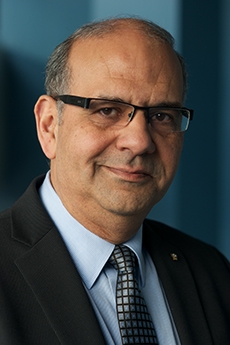Exascale and the Convergence of HPC, Big Data, AI and IoT


The field of high-performance computing (HPC) or supercomputing refers to the building and using of computing systems that are orders of magnitude faster than our common systems. This year, China has announced a new supercomputer, Sunway TaihuLight, which can perform close to a 100,000 trillion calculations in one second (93 PF on LINPAC). The top two supercomputers are now Chinese and the third is U.S. It is also expected that many countries will attempt to build an ExaFLOP supercomputer by 2020, a supercomputer that can perform more than one million trillion calculations per second. The top 10 supercomputers include installations in the China, the U.S., Japan, Switzerland, Saudi Arabia, and Germany. Scientists also see a “Convergence of Big Data and HPC” as processing massive data amounts become impractical without HPC. Others argue that even AI and IoT will also be integrated in such environments to provide the infrastructure for future smart life. In this talk, we examine the potential applications and capabilities of such convergence along with potential common system stacks, architectures and interoperability issues that can be addressed to accelerate and provide robust foundations for future smart applications.
Date and Time
Location
Hosts
Registration
-
 Add Event to Calendar
Add Event to Calendar
- Contact Event Host
- Co-sponsored by IEEE Computer Society Tunisia Chapter, IEEE Tunisia Section
Speakers
 Tarek El Ghazawi (IEEE Computer Society Distinguished Visitor) of George Washington University
Tarek El Ghazawi (IEEE Computer Society Distinguished Visitor) of George Washington University
Biography:
Tarek El-Ghazawi is a Professor in the Department of Electrical and Computer Engineering at The George Washington University, where he leads the university-wide Strategic Academic Program in High-Performance Computing. He is the founding director of The GW Institute for Massively Parallel Applications and Computing Technologies (IMPACT) and was a founding Co-Director of the NSF Industry/University Center for High-Performance Reconfigurable Computing (CHREC), established with funding from NSF, government and industry. El-Ghazawi’s research interests include high-performance computing, computer architectures, reconfigurable and embedded computing, nano-photonic based computing, and computer vision and remote sensing. He is one of the principal co-authors of the UPC parallel programming language and the first author of the UPC book from John Wiley and Sons. El-Ghazawi is also one of the pioneers of the area of High-Performance Reconfigurable Computing (HPRC).
Dr. El-Ghazawi was also one of the early researchers in Cluster Computing and has built the first GW cluster in 1995. At present he is leading efforts for rebooting computing based on new paradigms including analog, nano-photonic and neuromorphic computing. He has served on many boards and served as a consultant for organizations like CESDIS and RIACS at NASA GSFC and NASA ARC, IBM and ARSC. He has received his Ph.D. degree in Electrical and Computer Engineering from New Mexico State University in 1988. El-Ghazawi has published over 250 refereed research publications in his area and his work was funded by government and industry. His research was funded extensively by such government organizations like DARPA, NSF, AFOSR, NASA, DoD and industrial organizations such as Intel, AMD, HP, SGI. Dr. El-Ghazawi has served in many editorial roles including an Associate Editor for the IEEE Transactions Parallel and Distributed Computing and the IEEE Transaction on Computers. He has chaired and co-chaired many IEEE international conferences and symposia, including IEEE PGAS 2015, IEEE/ACM CCGrid2018, IEEE HPCC/SmartCity/DSS 2017 to name a few. Professor El-Ghazawi is a Fellow of the IEEE and selected as a Research Faculty Fellow of the IBM Center for Advanced Studies, Toronto. He was also awarded the Alexander von Humboldt Research Award, from the Humboldt Foundation in Germany (given yearly to 100 scientists across all areas from around the world), the Alexander Schwarzkopf Prize for Technical Innovation, and the GW SEAS Distinguished Researcher Award. El-Ghazawi has served as a senior U.S. Fulbright Scholar.
Address:United States

